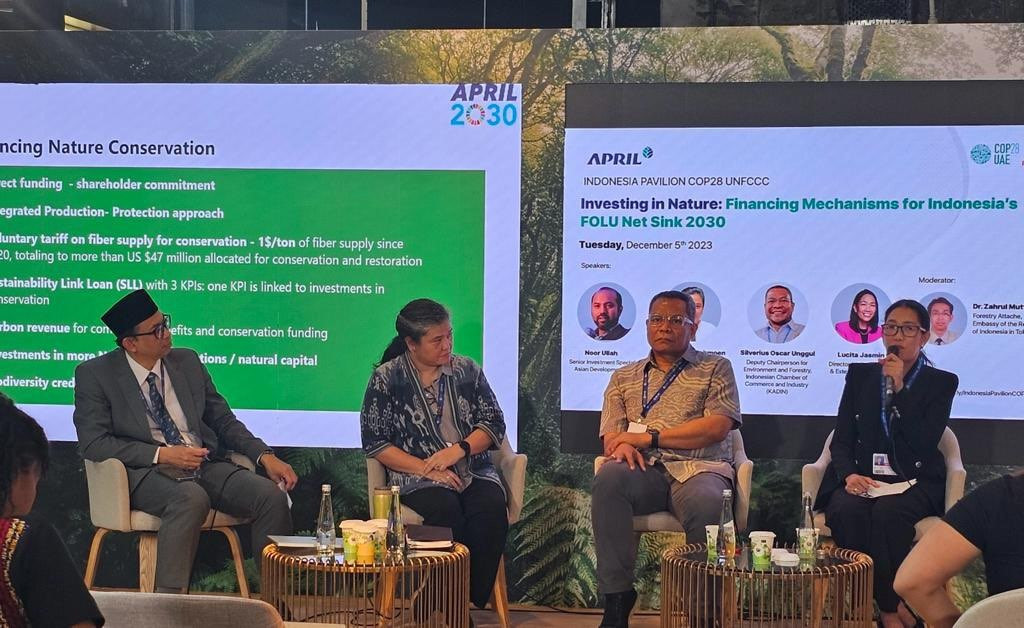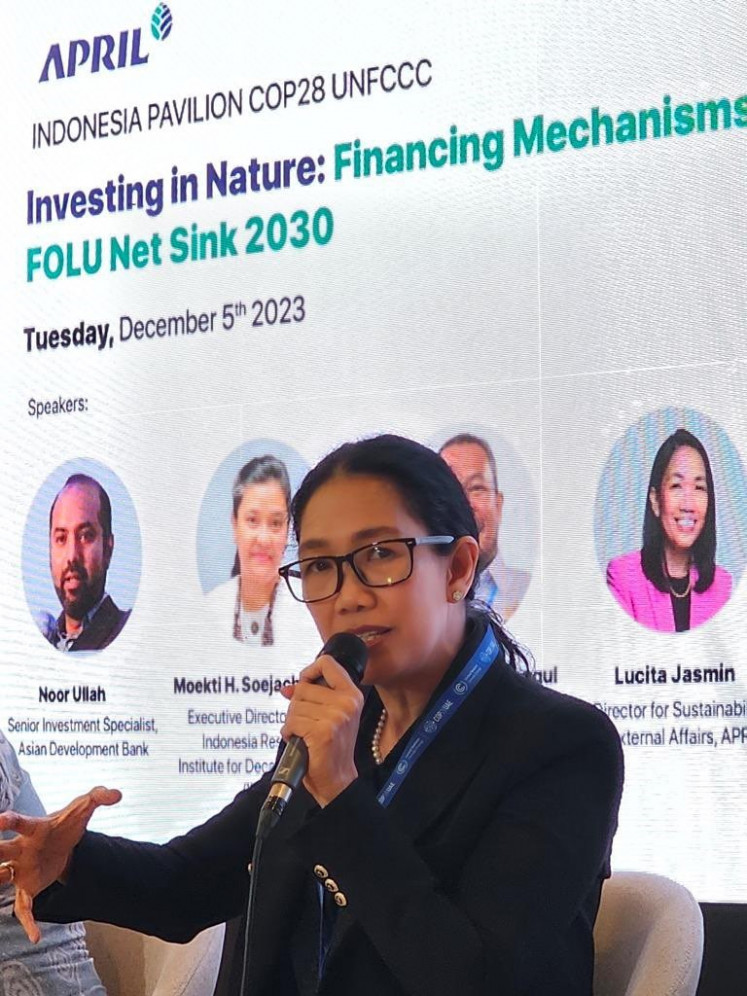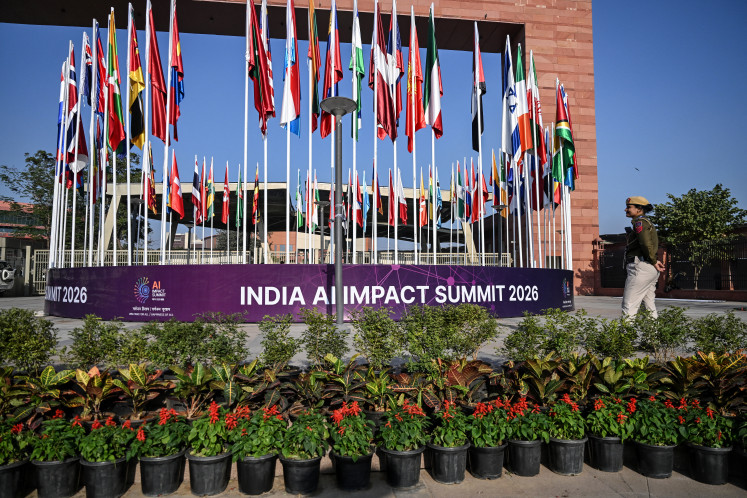Popular Reads
Top Results
Can't find what you're looking for?
View all search resultsPopular Reads
Top Results
Can't find what you're looking for?
View all search resultsAPRIL underlines the importance of investment in nature, conservation funding at COP28
Curbing greenhouse gas (GHG) emissions and conserving natural resources as part of a lower carbon intensive economy is essential to achieving global and national climate goals.
Change text size
Gift Premium Articles
to Anyone
C
urbing greenhouse gas (GHG) emissions and conserving natural resources as part of a lower carbon intensive economy is essential to achieving global and national climate goals. While there is consensus on the need to act with urgency, how to fund this transition is not always as clear.
Estimates have shown that the preservation of global biodiversity and its ecosystems require approximately US$300 to US$400 billion funding annually, according to Global Environment Fund. Debate continues among nation states on how to secure this level of financing and the need to support developing economies in particular.
Speaking to an audience of Indonesian business and government stakeholders at the Indonesian Pavilion at COP28 in Dubai, APRIL Group’s Director for Sustainability and External Affairs, Lucita Jasmin, shared how APRIL has worked to balance sustainable production with investments in conservation and biodiversity, highlighting how the company’s approach to investment in nature had evolved over several years.
APRIL operates an integrated pulp and paper operation in Pangkalan Kerinci, Riau Province, where alongside its sustainably managed plantation forests, it is conserving and restoring more than 360,000 hectares of forest, including 150,000 hectares as part of Restorasi Ekosistem Riau, an ecosystem restoration programme on the Kampar Peninsula in Riau Province, Sumatra.
The Restorasi Ekosistem Riau programme was initially boosted by a US$100m investment in conservation announced by APRIL at COP25 in Paris in 2015. Since then, APRIL has developed a bespoke nature funding model to deliver the resources needed to restore and protect a large area of forest over the long term.
“Our management and funding of conservation and restoration has evolved into an integrated approach that we term our ‘production-protection’ model. This effectively embeds funding for nature into our business model, where the revenue we generate from our production forestry operations funds the technology, science and people required to manage our restoration and conservation programmes,” said Lucita Jasmin, Director for Sustainability and External Affairs, at APRIL Group.
“It is part of our planning process and is built into our targets and our budget cycle annually as part of an integrated approach that aims to grow our business sustainably while having a positive impact on climate, nature and people,” she added.
The production-protection approach underscores APRIL’s commitment to achieving the Indonesian government’s FOLU Net Sink target, providing long-term, consistent funding for forest protection and restoration. In APRIL’s model, sustainably managed plantation forests serve as protective buffer zones around conservation and restoration forest areas.
Indonesia’s FOLU Net Sink target aims to ensure that the amount of carbon absorbed by the forest and land sector is equal to or greater than the emissions it produces. FOLU, initiated by Indonesia’s Environment and Forestry Ministry, represents one of the country's concrete steps in the forestry sector to fulfil the Paris Agreement, reducing carbon emissions and limiting global temperature rise to below 1.5 degrees Celsius.
As part of the company’s APRIL2030 commitments, APRIL evolved its funding model for nature further, adopting a voluntary self-imposed tariff on conservation, where US$1 for every ton of fiber output from its mill is targeted at conservation or restoration.
“What that means on a yearly basis is that we have between US$10 to 15 million allocated or committed to forest restoration projects. Since its adoption in 2020, we have allocated US$47 million,” Lucita said, adding that the budget is directed towards its Restorasi Ekosistem Riau programme as well as partnerships with other conservation organizations.
Lucita also shared the growth opportunities presented by sustainability-linked loans (SLL), where finance is linked to sustainability-focused key performance indicators that the company needs to meet to maintain its interest rates. In APRIL’s case, these loans include performance metrics related to its investments in conservation and restoration.
“If we invest in nature, it also has a financial impact because if we achieve our KPIs then we benefit as a company, and nature benefits too,” Lucita said.
“Through the evolution of these approaches, we’re working to demonstrate that it’s possible to fund nature over the long-term as part of a sustainable business model, that contributes to global and national climate goals,” she concluded.
This article was published in collaboration with APRIL Group.












